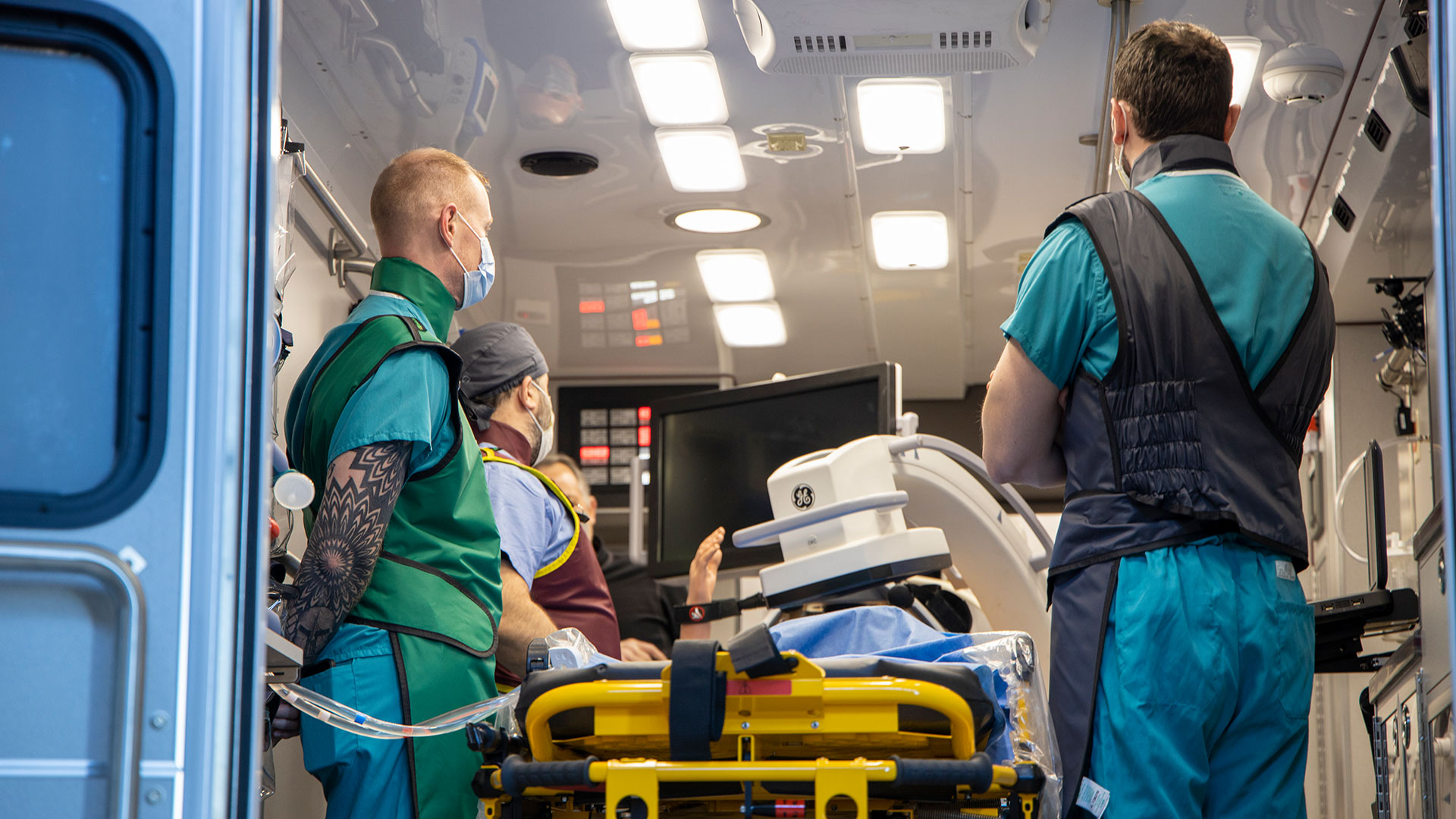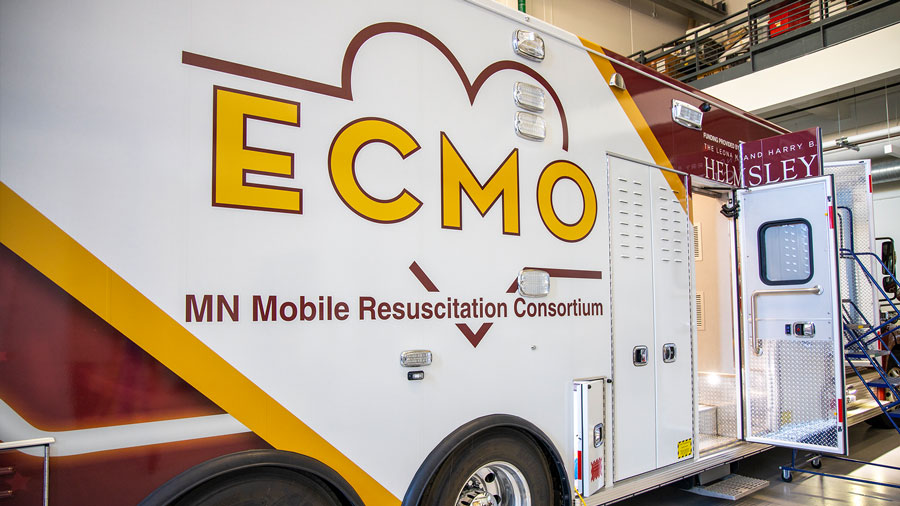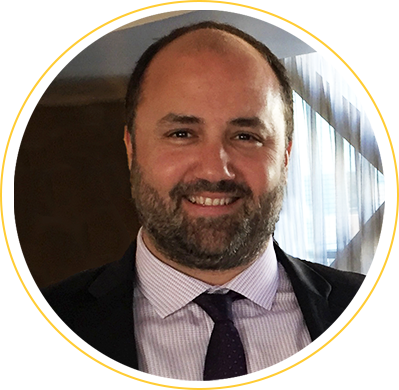

Our homegrown Super Heroes now have a Super Truck. And that brings hope to every Minnesotan who may be faced with a real-life killer – sudden cardiac arrest.
Says Dr. Jason Bartos, who, along with Dr. Demetri Yannopoulos, leads this Herculean effort from the University of Minnesota Medical School:
“There’s very few things in the world of medicine that compare to knowing that you potentially just saved a life.”
ECMO, short for Extracorporeal Membrane Oxygenation, and a growing team of doctors who know how to use it are the Super Heroes of this story.
The technology, which does the work of your heart and lungs while other doctors work to restore your life, has been around for a quite a while.
But the Medical School team, thanks to a generous grant from the Helmsley Charitable Trust, managed to make it both portable and mobile.
In its initial five years of deployment in the Twin Cities, that’s made all the difference in the world for 110 people who suffered sudden cardiac arrest.
“That’s 110 people who simply wouldn’t be alive without this,” says Dr. Yannopoulos.
Time is everything when it comes to sudden cardiac arrest, a condition that, because it often strikes without symptoms, can blindside any one of us.
CPR, often performed by loved ones under extreme duress, can keep us alive, but the sooner medical help is available, the better our chances.
That’s where the ECMObile can come in, a city bus-sized vehicle that not only carries ECMO and a team of doctors but enough medical devices to provide hospital-level emergency care.

To cover all of Minnesota, it is, of course, going to take more than one ECMObile, not to mention teams of doctors.
But, job one, outfitting and building the first truck is complete and, sometime this summer, will begin testing in the Twin Cities area.
With fine tuning, more ECMObiles will be built and, at some point, deployed to cover all of Minnesota, and even states and countries beyond.

It’s no stretch to call these Super Heroes when you consider the number of people who could be saved.
In fact, ECMO proved to be so much more effective than standard care that a 2020 clinical trial was stopped so it could be made available to all participants.
Putting ECMO and an ECMObile within 30 minutes of everybody in Minnesota could translate into an astounding 550 lives saved every year.
“These are people who are on average 57 years old,” Dr. Bartos says. “With families, friends, careers. To think about the impact of that is pretty impressive.”
And Super.


















Medical Director for the Department of Resuscitation at the University of Minnesota »
Inspired
Center for Resuscitation Medicine
Mobile ECMO
For emergency responders: LifeLink III ECMO Activation Line:
American Heart Association: